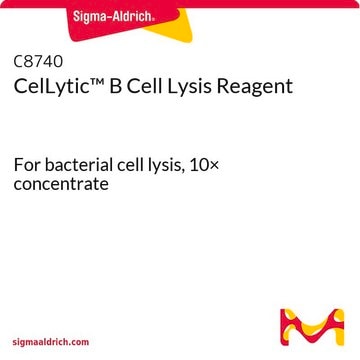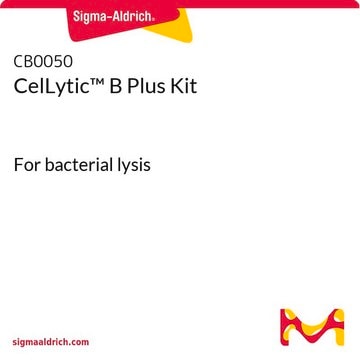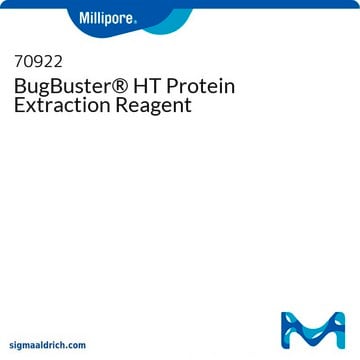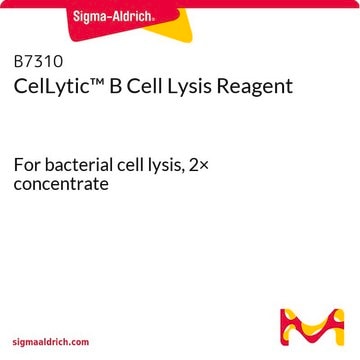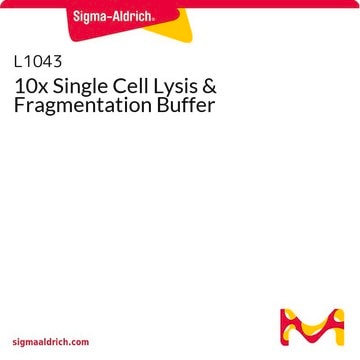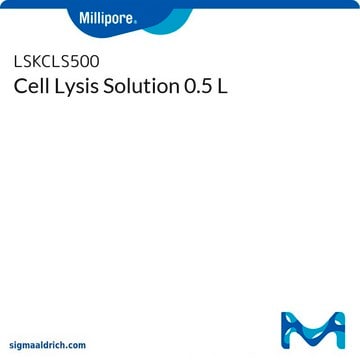B7435
CelLytic™ B Cell Lysis Reagent
For bacterial cell lysis, standard strength
Synonym(s):
Cell lysis reagent
About This Item
Recommended Products
form
solution
Looking for similar products? Visit Product Comparison Guide
Related Categories
Application
Features and Benefits
- Higher protein extraction efficiency than traditional methods such as sonication and lysozyme
- Scalable for 1 to 25 grams of bacterial cell paste
- No interference with downstream applications such as affinity chromatography, IP, and Western blotting
- Compatible with protease inhibitors, inhibitor cocktails, chaotropes, salts, chelating agents and reducing agents
Other Notes
Legal Information
related product
Signal Word
Warning
Hazard Statements
Precautionary Statements
Hazard Classifications
Eye Irrit. 2 - Skin Irrit. 2
Storage Class Code
12 - Non Combustible Liquids
WGK
WGK 3
Flash Point(F)
Not applicable
Flash Point(C)
Not applicable
Personal Protective Equipment
Certificates of Analysis (COA)
Search for Certificates of Analysis (COA) by entering the products Lot/Batch Number. Lot and Batch Numbers can be found on a product’s label following the words ‘Lot’ or ‘Batch’.
Already Own This Product?
Find documentation for the products that you have recently purchased in the Document Library.
Customers Also Viewed
Articles
ReadyShield® phosphatase and protease inhibitor cocktail FAQ for sample protection in a variety of cell types and tissue extracts, including mammalian, plant, and microbial samples. Our ReadyShield® Protease Inhibitor Cocktail is a non-freezing solution that contains inhibitors with a broad specificity for serine, cysteine, acid proteases and aminopeptidases.
Our team of scientists has experience in all areas of research including Life Science, Material Science, Chemical Synthesis, Chromatography, Analytical and many others.
Contact Technical Service